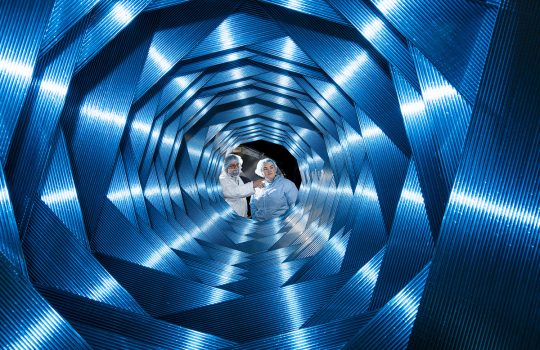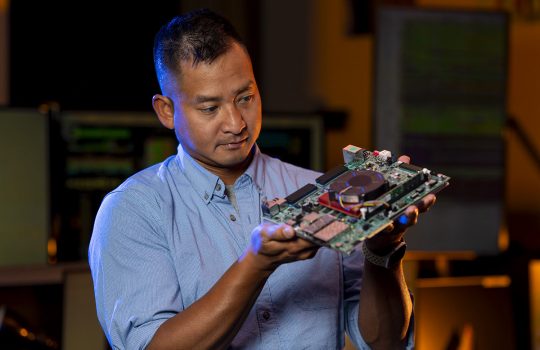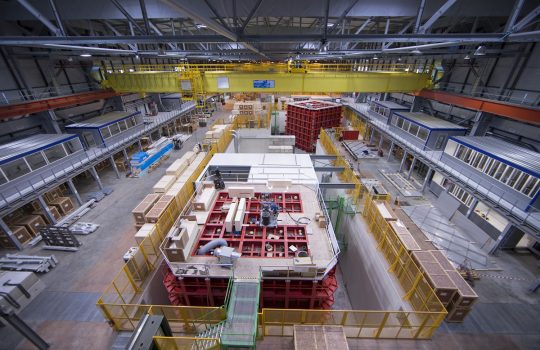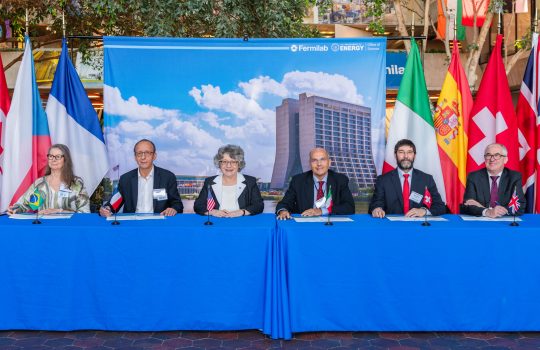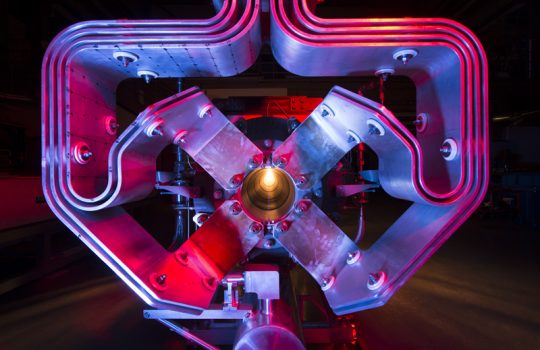Mu2e reaches major milestone with tracker move
Researchers at Fermilab moved the final subdetector for Mu2e into the experiment hall, marking a major step forward for the collaboration. Once completed, Mu2e will search for a rare muon conversion that may unlock evidence of physics beyond the Standard Model.

